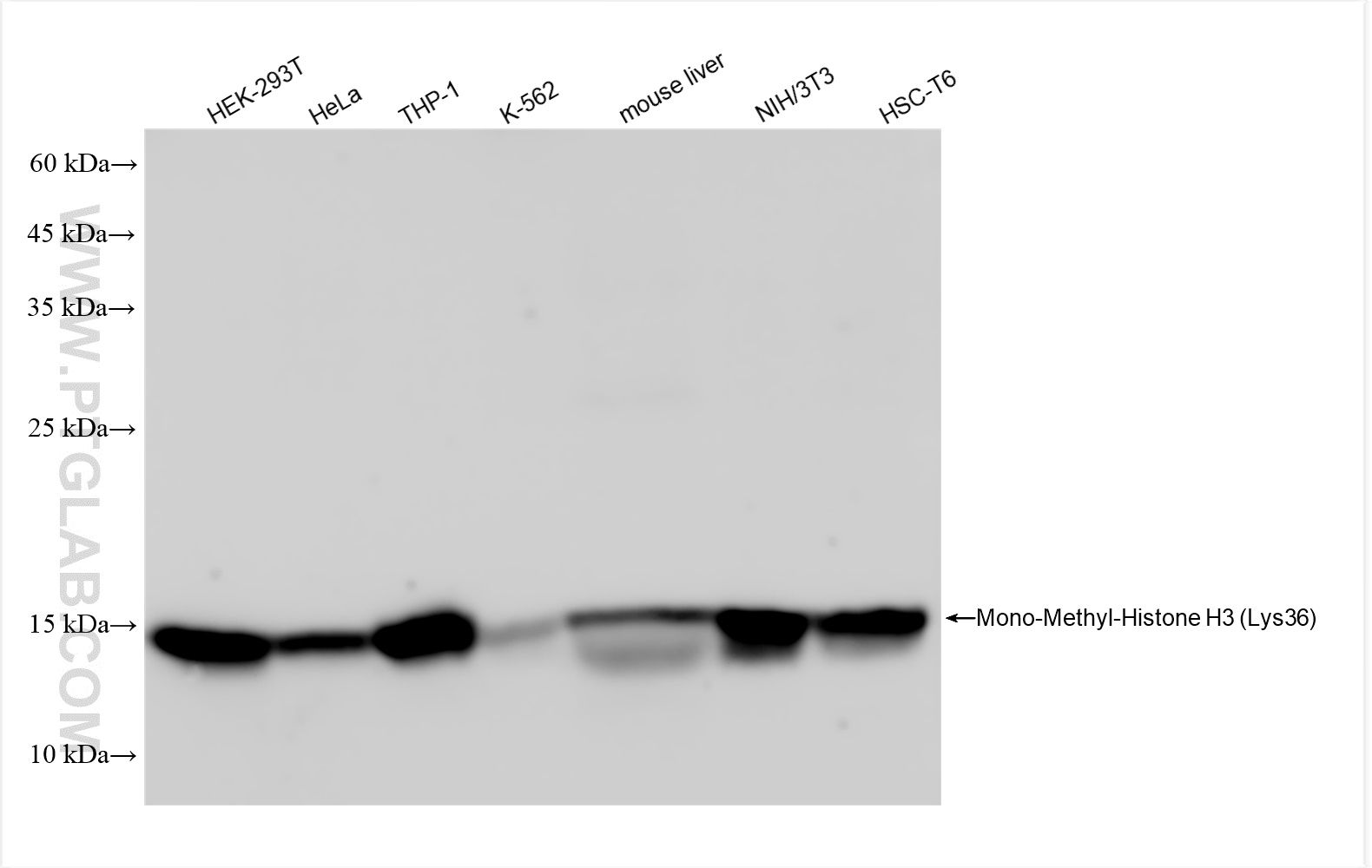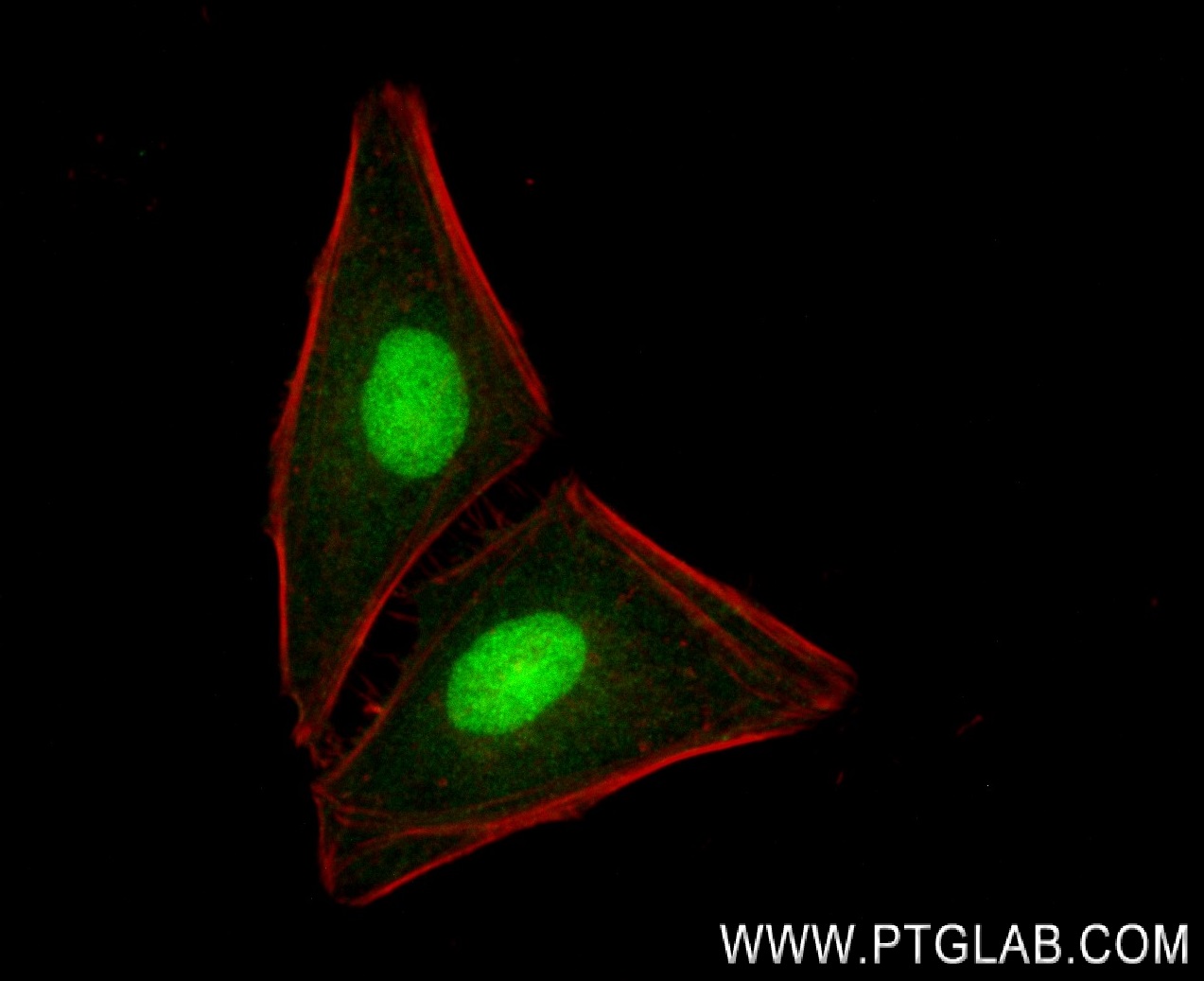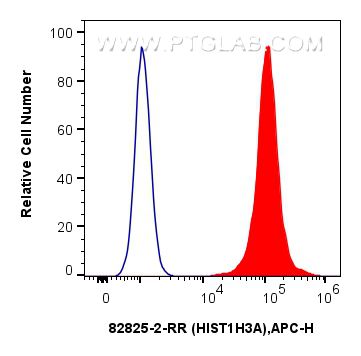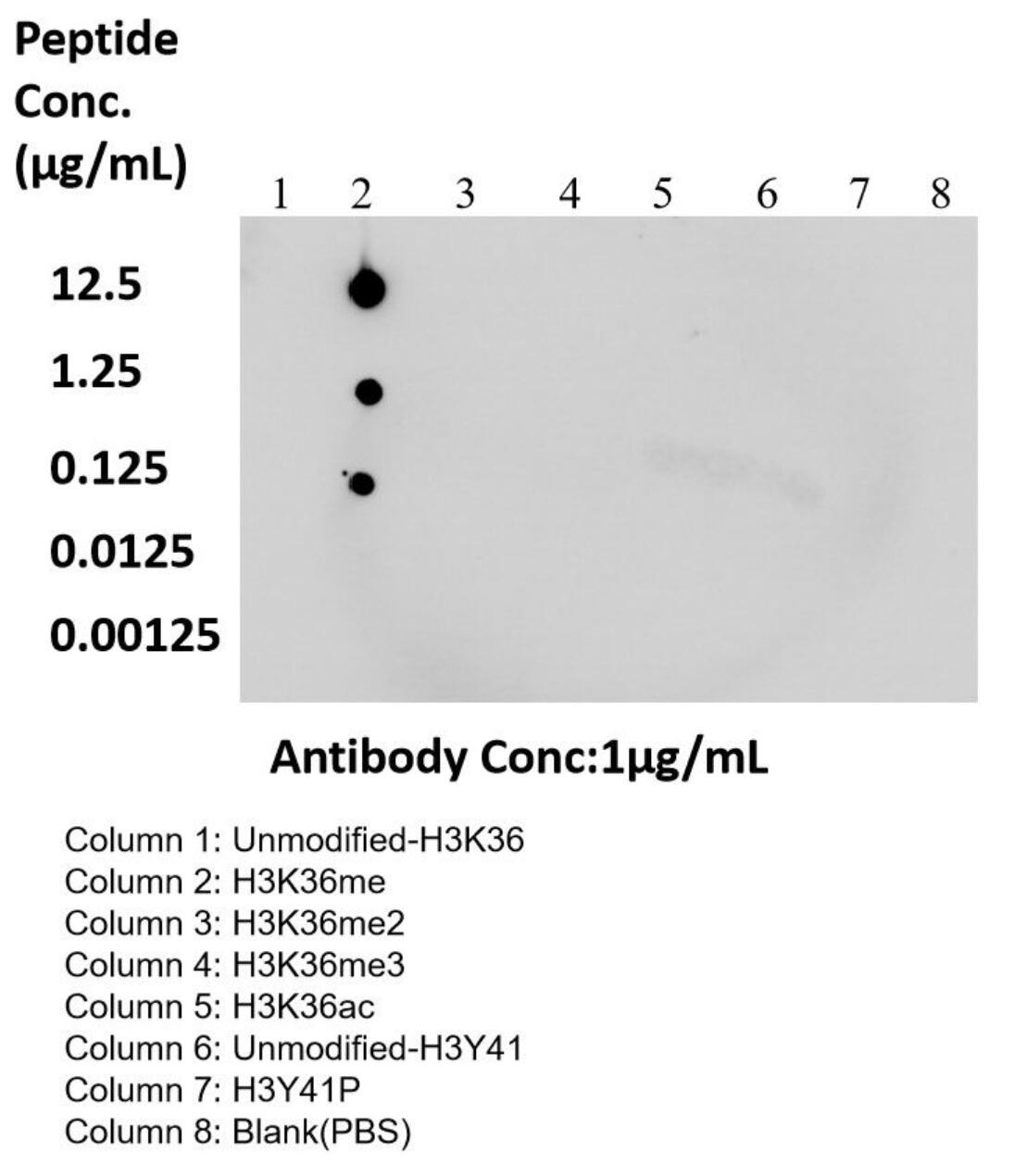Mono-Methyl-Histone H3 (Lys36) Recombinant antibody
Mono-Methyl-Histone H3 (Lys36) Uni-rAbTM Recombinant Antibody for WB, FC (Intra), Dot Blot, ELISA
Host / Isotype
Rabbit / IgG
Reactivity
human, mouse, rat
Applications
WB, FC (Intra), Dot Blot, ELISA
Conjugate
Unconjugated
CloneNo.
241138B6
Cat no : 82825-2-RR
Synonyms
Validation Data Gallery
Tested Applications
| Positive WB detected in | HEK-293T cells, HeLa cells, THP-1 cells, K-562 cells, mouse liver tissue, NIH/3T3 cells, HSC-T6 cells |
| Positive FC (Intra) detected in | HeLa cells |
| Positive Dot Blot detected in | peptide |
Recommended dilution
| Application | Dilution |
|---|---|
| Western Blot (WB) | WB : 1:5000-1:50000 |
| Flow Cytometry (FC) (INTRA) | FC (INTRA) : 0.25 ug per 10^6 cells in a 100 µl suspension |
| DOT BLOT | DOT BLOT : 1:10-1:100 |
| It is recommended that this reagent should be titrated in each testing system to obtain optimal results. | |
| Sample-dependent, Check data in validation data gallery. | |
Product Information
82825-2-RR targets Mono-Methyl-Histone H3 (Lys36) in WB, FC (Intra), Dot Blot, ELISA applications and shows reactivity with human, mouse, rat samples.
| Tested Reactivity | human, mouse, rat |
| Host / Isotype | Rabbit / IgG |
| Class | Recombinant |
| Type | Antibody |
| Immunogen | Peptide |
| Full Name | histone cluster 1, H3a |
| Observed Molecular Weight | 15 kDa |
| GenBank Accession Number | BC066245 |
| Gene Symbol | HIST1H3A |
| Gene ID (NCBI) | 8350 |
| Conjugate | Unconjugated |
| Form | Liquid |
| Purification Method | Protein A purfication |
| Storage Buffer | PBS with 0.02% sodium azide and 50% glycerol pH 7.3. |
| Storage Conditions | Store at -20°C. Stable for one year after shipment. Aliquoting is unnecessary for -20oC storage. 20ul sizes contain 0.1% BSA. |
Background Information
Histones, including H1/H5 (linker histones), H2, H3, and H4 (core histones), are nucleic proteins which interact with DNA to form the nucleosomes and play important roles in gene regulation and DNA replication. Histone proteins are highly post-translationally modified while Histone H3 is the most extensively modified.
Protocols
| Product Specific Protocols | |
|---|---|
| WB protocol for Mono-Methyl-Histone H3 (Lys36) antibody 82825-2-RR | Download protocol |
| Standard Protocols | |
|---|---|
| Click here to view our Standard Protocols |






